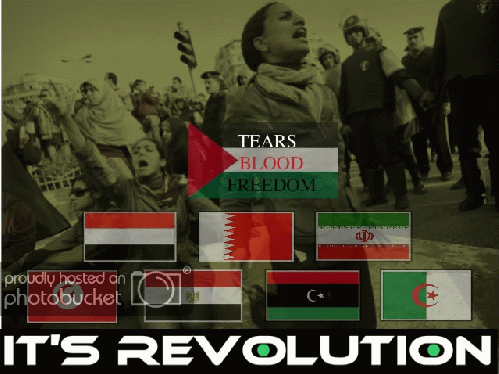President Barack Obama delivered a major foreign policy speech Thursday on historic changes in the Middle East. This was his second major address about America's relationship with the Muslim world which may be dubbed as Cairo-2.
According to Ian Black, Middle East editor of the Guardian, Obama lavished praise on the spirit of people power that has animated this year's "Arab spring" but also made clear that direct US involvement in the region would remain selective. Strikingly, Saudi Arabia, one of the most repressive countries in the Arab world and a key US ally and oil supplier, got not a single mention in the 5,400-word speech.
Nor did Obama offer any really new ideas on the Israeli-Palestinian impasse, reiterating the "unshakeable" US commitment to Israel's security, Black said adding: But he did clearly oppose the "symbolic" recognition by the UN of an independent Palestinian state in September, an idea for which momentum has been growing internationally in the absence of any peace negotiations.
Obama had harsh words for Bashar al-Assad of Syria, where hundreds have been killed by the security forces, but he did not address the reason why Libyan logic did not apply, and why Syria's dictator should not also be removed, Black argued.
Arab-Israeli conflict
The most important part of the speech dealt with borders as a key element of "reset strategy" will involve prodding Israel and the Palestinians to re-engage in negotiations on a two-state solution to the six-decade Arab-Israeli conflict. Yet the basis for a solution he offered -- a settlement based on Israel's pre-1967 borders, with negotiated land swaps -- is well over a decade old.
"The United States believes that negotiations should result in two states with permanent Palestinian borders with Israel, Jordan and Egypt, and permanent Israeli borders with Palestine," said Obama.
Obama did call for a permanent Palestinian state along 1967 borders, with Palestinian control over its external borders and, most importantly, a contiguous Palestinian state. But all of these points were undermined by the insistence on security as the metric of progress, and a commitment to a 30-year old negotiations process that will lead nowhere.
The President reaffirmed an unshakable U.S. commitment to Israel's security and condemned what he called "symbolic actions to isolate Israel at the United Nations," referring to the Palestinians' plan to seek General Assembly recognition for statehood in September.
September 2011 is the target date for completion of institutional readiness for statehood set by the Palestinian Authority and supported by the diplomatic grouping known as the Quartet -- which comprises the UN, European Union, Russia and the United States. The World Bank's assessment in September 2010, noted by the Quartet, was that "if the PA maintains its current performance in institution-building and delivery of public services, it is well positioned for the establishment of a state at any point in the near future'.
On April 12, 2011 a new United Nations report highlighted progress made by the Palestinian Authority in building institutions necessary for a functioning State, while stressing the need for Israel to roll back "measures of occupation" and for an urgent resumption of negotiations between the two sides. "In the limited territory under its control and within the constraints on the ground imposed by unresolved political issues, the PA has accelerated progress in improving its governmental functions," states the report, entitled "Palestinian State-building: A Decisive Period." Prepared by the office of the UN Special Coordinator for the Middle East Peace Process (UNSCO), the report notes that in the six areas where the UN is most engaged, governmental functions are now sufficient for a functioning government of a State.
The diplomatic recognition of a Palestinian state is gathering momentum, particularly in Latin America. Brazil, Argentina, Bolivia and a number of other nations in that region have recognized the independence of Palestine. On December 6, 2010 the Brazilian Foreign Ministry announced that Brasilia recognizes the Palestinian state within the 1967 borders. By early 2011 a dozen countries in the Caribbean basin and Africa were about to do the same. If more countries announce a recognition of the independence of Palestine, the Palestinians can push a resolution on the creation of a new state through the UN General Assembly.
(Note: You can view every article as one long page if you sign up as an Advocate Member, or higher).






